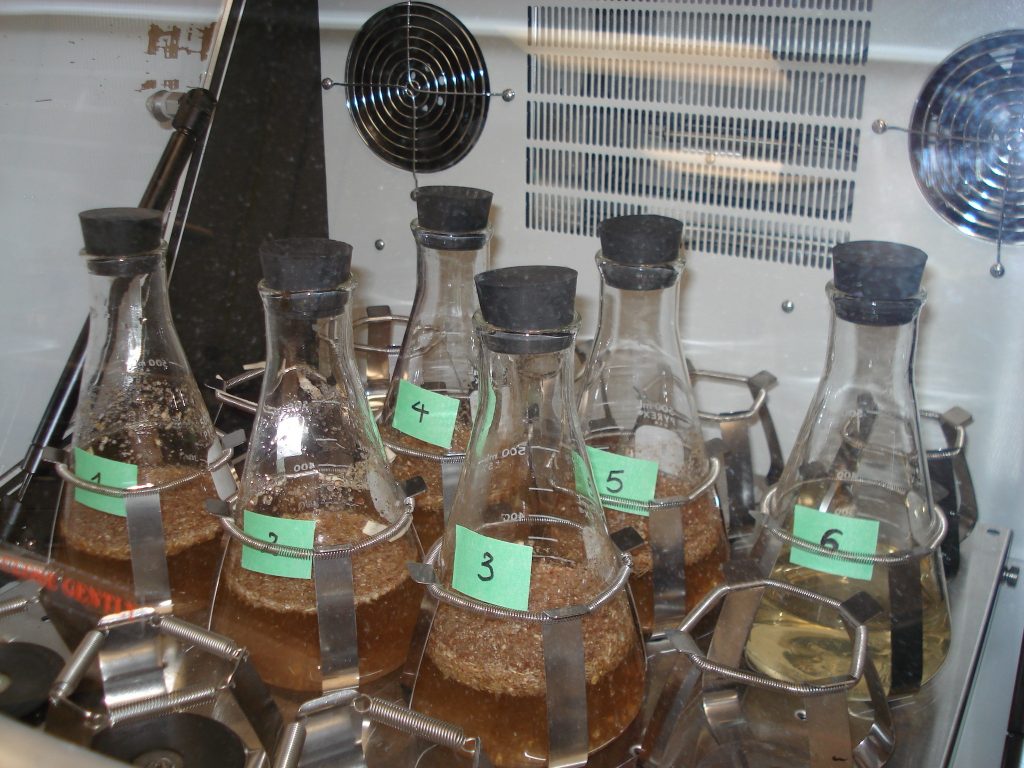Integrated process for extracting the bark of black spruce: aqueous extract and essential oil

Research in wood chemistry at the Renewable Materials Research Centre at Université Laval is proposing new alternatives for the use of forest residues. The valorization of wood processing residues, such as bark, by the production of natural extracts is one of the fields of study.
Available in very large volumes, black spruce bark is a wood by-product normally burned to generate energy. However, the large quantities of bioactive molecules naturally present in bark can be recovered by extraction with water to produce bioactive extracts. Several processes have been tested and produce extracts with very different compositions and properties. These include a hot water extract rich in antioxidant polyphenols and an essential oil rich in aromatic monoterpenes. This essential oil and the aqueous extract can be produced simultaneously by a process that integrates hot water extraction and hydrodistillation while preserving the calorific value of the residual sawdust for its common application (combustion). Two types of hydrodistillation are studied, steam distillation and water distillation, by comparing the yields and compositions of the different products.
This integrated and green process, producing two natural products with high added value, provides an efficient management solution for waste generated during wood transformation. The cosmetics and nutrition sectors, constantly looking for new natural ingredients, may be interested in marketing the aqueous extract for skin treatments or as an antioxidant food supplement. The essential oil, for its part, could enrich the palette of the perfumer or be used in aromatherapy.
To learn more, consult the Research Note

